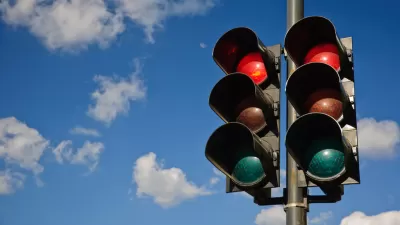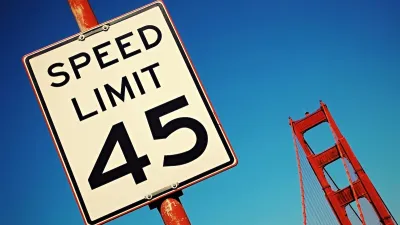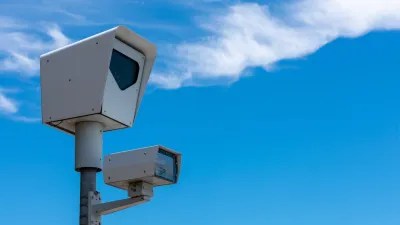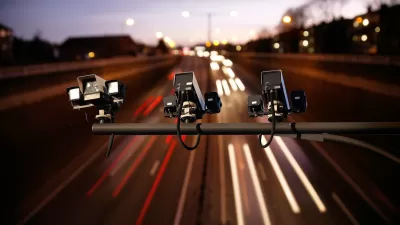Some states and cities are citing personal liberty and constitutional rights to oppose automated traffic enforcement and other road safety measures.

With traffic fatalities on the rise in many states, it would seem natural for state leaders to tap into the $15 billion in federal funding available for road safety projects. But 'liberty politics' could hinder efforts to improve traffic safety, writes Matthew Brown, as illustrated by this quote from a Utah resident: "This country was founded on freedom and liberty, this country was not founded for safety or security," said Dalane England, adding that "People are going to die if we drive automobiles."
For example, while the U.S. Department of Transportation recommends automated traffic enforcement, only 16 states have speed camera programs, and six states explicitly prohibit both speed cameras and red light cameras. Utah, for example, banned red-light cameras in the 1990s. "While local leaders, law enforcement and some residents argued at the time that the technology would save lives, opponents won the day by framing the issue around personal liberty." More recently, Florida governor Ron DeSantis expressed a similar sentiment about proposed speed cameras in his state.
"Those arguments may surface again as states and localities decide how they want to use their share of funding set aside for road safety measures," writes Brown. "Federal guidance also requires at least 15% of a state’s highway safety improvement program funding targets pedestrians, bicyclists and other nonmotorized road users if those groups make up 15% or more of the state’s crash fatalities."
FULL STORY: How personal liberty politics could prevent states from addressing traffic fatalities

Study: Maui’s Plan to Convert Vacation Rentals to Long-Term Housing Could Cause Nearly $1 Billion Economic Loss
The plan would reduce visitor accommodation by 25,% resulting in 1,900 jobs lost.

North Texas Transit Leaders Tout Benefits of TOD for Growing Region
At a summit focused on transit-oriented development, policymakers discussed how North Texas’ expanded light rail system can serve as a tool for economic growth.

Using Old Oil and Gas Wells for Green Energy Storage
Penn State researchers have found that repurposing abandoned oil and gas wells for geothermal-assisted compressed-air energy storage can boost efficiency, reduce environmental risks, and support clean energy and job transitions.

Private Donations Propel Early Restoration of Palisades Playground
Los Angeles has secured over $1.3 million in private funding to restore the Pacific Palisades playground months ahead of schedule, creating a modern, accessible space that supports community healing after recent wildfires.

From Blight to Benefit: Early Results From California’s Equitable Cleanup Program
The Equitable Community Revitalization Grant (ECRG) program is reshaping brownfield redevelopment by prioritizing projects in low-income and environmental justice communities, emphasizing equity, transparency, and community benefits.

Planting Relief: Tackling Las Vegas Heat One Tree at a Time
Nevada Plants, a Las Vegas-based nonprofit, is combating the city’s extreme urban heat by giving away trees to residents in underserved neighborhoods, promoting shade, sustainability, and community health.
Urban Design for Planners 1: Software Tools
This six-course series explores essential urban design concepts using open source software and equips planners with the tools they need to participate fully in the urban design process.
Planning for Universal Design
Learn the tools for implementing Universal Design in planning regulations.
Ascent Environmental
Borough of Carlisle
Institute for Housing and Urban Development Studies (IHS)
City of Grandview
Harvard GSD Executive Education
Toledo-Lucas County Plan Commissions
Salt Lake City
NYU Wagner Graduate School of Public Service





























